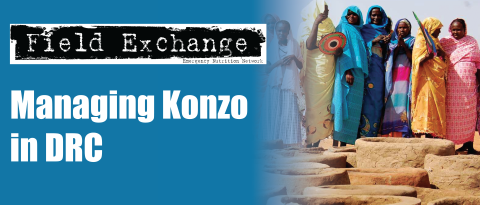Revisiting Sphere: new standards of service delivery for new trends in protracted displacement
Summary of research1
Protracted refugee situations (PRS) are those in which refugees find themselves in a long-lasting and intractable state of limbo. Roughly half of the world's refugees (5.2 million) by mid-2007 were living in protracted displacement. According to a recently published paper, trends among displaced persons are changing. Numbers are on the increase, the proportion of refugees who have been displaced for five years or longer has risen, and the average length of time people spend in protracted displacement has also grown. The authors argue this trend highlights the need for a new standard of service provision more appropriate to the displaced than the current Sphere standards, which were developed with acute emergencies in mind. It is further suggested that the Sphere Standards can only offer people living in PRS short-term policies and programmes designed for humanitarian emergencies, rather than more proactive, long-term policies and programmes designed to allow people to maximise their potential through development- oriented strategies for service delivery. A separate method of approaching the standard of care in post-emergency phase camps is that of integration, in which displaced and local populations alike receive the same services.
The authors identify shortcomings in the Sphere Standards for PRS with respect to reproductive health, nutritional chronic disease, mental health, capacity building and facilitating sustainable solutions. Further research, discussion and analyses is required to establish these standards with non-governmental organisations (NGOs) openly sharing lessons learned from their work with displaced populations. Suggestions for evidence-based best practice can then be agreed.
With regard to nutrition, the Sphere Standards encourage the procurement of local food sources for displaced populations, noting that general food distributions should be introduced only when absolutely necessary and should be discontinued as soon as possible. However, displaced populations often find themselves dependent on external food aid due to restrictions on movement, land use or income and inadequate local agricultural resources, e.g. Sierra Leonean and Liberian refugees living in Guinea. Long-term dependence and the frequent inability to engage in local agriculture has resulted in high levels of acute malnutrition in many PRS, including camps in Sierra Leone, Kenya, Ethiopia and Eritrea. Also, the Sphere Standards indicate that monitoring the specific micronutrient consumption of displaced populations is logistically unrealistic. While that may be the case in acute emergencies, PRS offers ample opportunity to monitor and regulate micronutrient status.
A recent analysis of micronutrient deficiencies in children living in five protracted refugee camps in Africa found a high prevalence of anaemia, iron deficiency and vitamin A deficiency. People reliant on food aid or restricted food sources for extended periods of time are thus at risk of acute and chronic malnutrition, as well as micronutrient deficiencies which have significant physical and mental consequences. Appropriate nutrition standards and indicators should be developed and included in guidelines for post-emergency camps. However, the authors argue, there is no framework that analyses particular risk factors for nutritional deficiencies in protracted displacement and thus no appropriate standardised recommendations exist.
The authors conclude that a collaborative effort to develop a sound evidence base examining the determinants of health for PRS is the first step. The second step, mirroring Sphere's success using a multi-agency development process, should involve a global discussion by all players involved in this research and service delivery, with the goal of agreeing upon a set of standards for persons living in protracted displacement. When finalised, these new standards will allow NGOs to be accountable to an industry standard, and to secure funding for each of the identified sectors. Donors require documentation of effective, proven interventions and services to initiate and renew funding. These standards will enable this process with services appropriate to populations who have undergone the indignity of protracted displacement.
If you have any experiences of working with displaced populations in protracted situations, we would be happy to feature them in future issues of Field Exchange. Send ideas to the ENN editorial team, email: marie@ennonline.net
See also the news piece in this issue on the development of UNHCR's 'Operational Guidance on the Use of Special Nutritional Products to Reduce Micronutrient Deficiencies and Malnutrition in Refugee Populations'.
1McDougal. L and Beard. J (2011). Revisiting Sphere: new standards of service delivery for new trends in protracted displacement. Disasters, volume 35 (1), pp 87-101, 2011
Imported from FEX website


